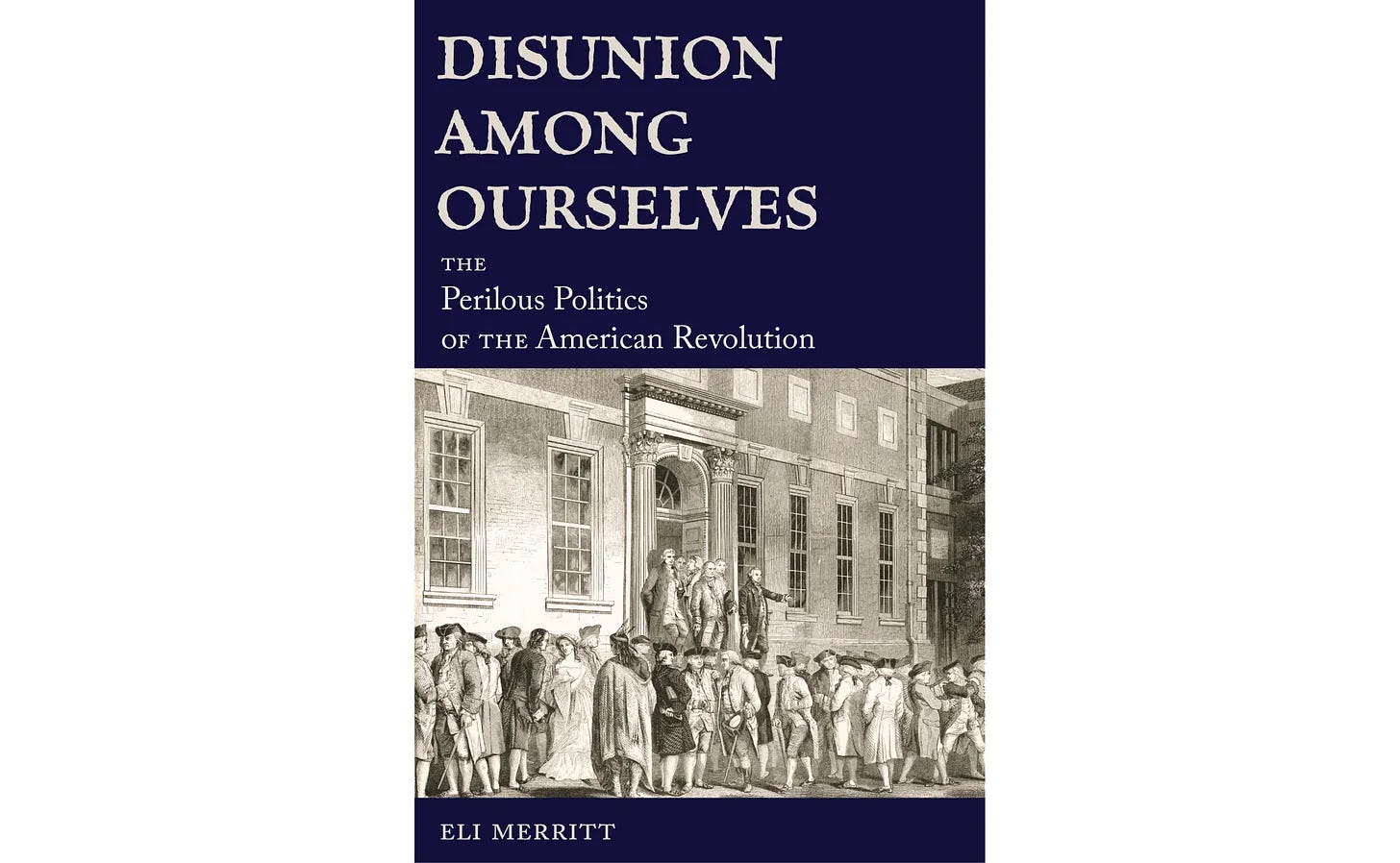Ben Franklin Warns of Civil War
Americans would never submit 'unless compelled by force of arms’
In February of 1766 Benjamin Franklin was the most famous American alive. That’s one reason the House of Commons summoned him to the chamber floor to testify about the thirteen colonies’ rebellious reception of the Stamp Act.
Hailed across Europe and the British empire as a modern Prometheus for taming electricity, the 60-year-old scientist-statesman was a Fellow of the Royal Society, Deputy Postmaster General of North America, a virtuoso of the Enlightenment salon, and a renowned writer whose intellect spanned invention, natural science, philosophy, and politics.
Franklin’s Poor Richard’s Almanack, first published in 1732, had outsold most every other book in the empire, except the Bible.
Now, six months after the riots in America, the leadership of the House of Commons requested Franklin’s presence to answer 174 questions, most of them concerned with how the colonists would react if Parliament doubled down on the Stamp Act.
In the witness box during a four-hour cross-examination, Franklin delivered courteous yet defiant news.
Americans would “never” submit to the unconstitutional usurpation of their right to tax themselves by their own representatives in their own assemblies.
Sooner than betray this greatest of all English liberties, he said, they would resist, revolt, and starve themselves, forcing the Parliament and king to launch a civil war to enforce the odious act.
Sooner than betray this greatest of all English liberties, the scientist-statesman promised, Americans would resist, revolt, and starve themselves.
‘A General Resistance’
MPs in London were always curious to learn about the history, economy, and culture of the thirteen colonies that lay some three thousand miles across the Atlantic Ocean.
But in the winter of 1766, they were beside themselves with indignation at colonial insolence. Therefore, from the famed and wise Franklin, they demanded to know what could done to tame unruly Americans and snap them into submission.
Multiple members of the House of Commons queried Franklin, who resolutely professed that the colonists would never back down:
Q. Do not you think the people of America would submit to pay the stamp duty, if it was moderated?
A. No, never, unless compelled by force of arms.
Q. Don’t you think they would submit to the stamp-act, if it was modified, the obnoxious parts taken out, and the duty reduced to some particulars, of small moment?
A. No, they will never submit to it.
Q. What do you think a sufficient military force to protect the distribution of the stamps in every part of America?
A. A very great force; I can’t say what, if the disposition of America is for a general resistance.
Loss of Affection and Commerce, Followed by Hostility
Throughout the four hours of cross-examination, Franklin did not waver in this singular analysis of the nature of the constitutional crisis facing the British empire.
If Parliament did not repeal the Stamp Act, he promised, there would be loss of affection—and commerce—between the colonies and the mother country, followed by armed hostilities.
Q. If the act is not repealed, what do you think will be the consequences?
A. A total loss of the respect and affection the people of America bear to this country, and of all the commerce that depends on that respect and affection.
‘The EXAMINATION of Doctor BENJAMIN FRANKLIN, February 13, 1766’
Towards the end of the inquiry, MPs inquired about the possibility of a political two-step whereby Parliament would repeal the Stamp Act but simultaneously declare its everlasting constitutional right to impose the taxes, for the sake of preserving its supremacy in all legislation whatsoever.
Would the Americans accept this bargain?
Q. If the stamp-act should be repealed, would it induce the assemblies of America to acknowledge the rights of parliament to tax them, and would they erase their resolutions?
A. No, never.
Q. Is there no means of obliging them to erase those resolutions?
A. None that I know of; they will never do it unless compelled by force of arms.
To avoid such a clash of arms, Franklin recommended that Britain stay true to the constitution: Parliament should assert its supremacy over the regulation of commerce while humbly acknowledging the validity of the colonists’ claim to sovereignty over taxation.
According to the “Magna Carta” of 1215, and five hundred years of tradition, after all, the doctor said, Americans possessed the winning constitutional argument.
And Americans loved their constitution dearly—as much as life itself.
Therefore, to deny them this right in an ill-considered power struggle—angering and alienating them—was something more than an act of parliamentary folly. It was an invitation to catastrophe.
American Commonwealth is a reader-supported publication
Support for $50/year
*******
Eli Merritt is a political historian at Vanderbilt University and the author Disunion Among Ourselves: The Perilous Politics of the American Revolution
Public Lectures
America’s 250th Anniversary: Forging Unity Through History
Why Democrats Should Reclaim the American Founding
How to Talk About the 'Fourth of July'
More Articles by Eli Merritt
Books by Eli Merritt
Book Sources
Benjamin Franklin: An American Life, by Walter Isaacson
The First American: The Life and Times of Benjamin Franklin, by HW Brands
Online Sources
Take the Next Step
Gift a subscription to a friend or family member
Share, Like, Comment, or Restack below:







